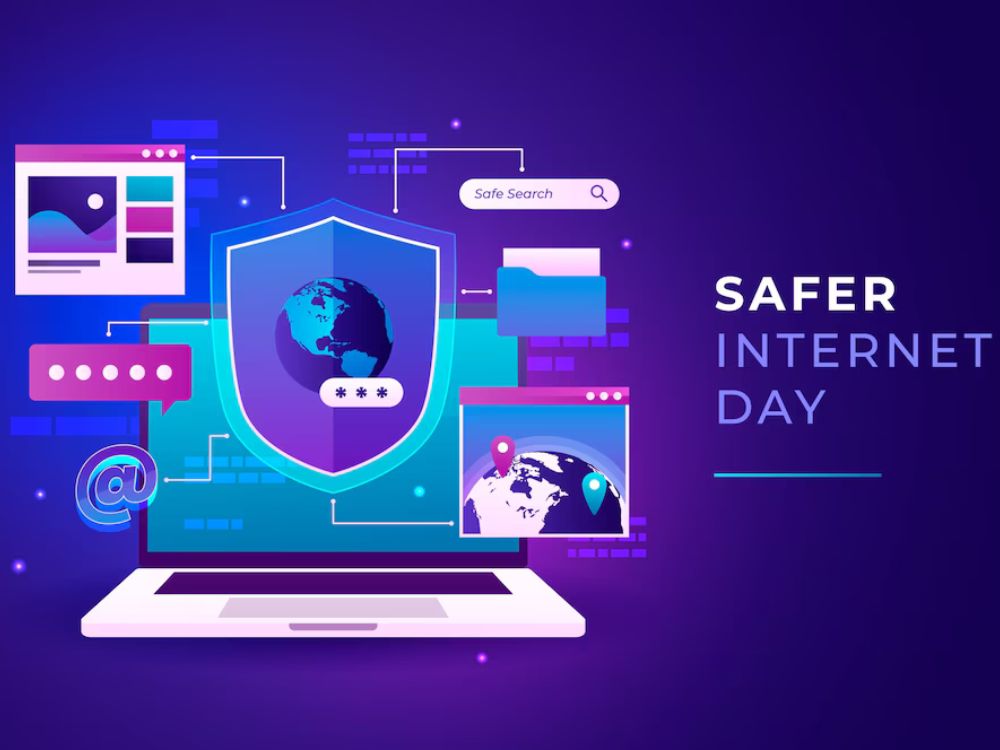In 2025, our lives are more intertwined with the digital world than ever before. From streaming our favorite shows to managing finances online, we’re constantly sharing personal information. But here’s the catch: every click, post, or purchase leaves a digital footprint that businesses, hackers, and even governments might exploit. Protecting your online privacy isn’t just a techy buzzword—it’s a necessity. Lucky for you, you don’t need to be a cybersecurity guru to stay safe. In this expert-crafted, human-friendly guide, we’ll explore the best ways to shield your personal data in 2025, all while keeping things engaging and easy to digest. Let’s dive in!
Why Online Privacy Matters in 2025
Picture this: your personal details—name, address, browsing habits—are like gold in the digital age. Companies want them for targeted ads, hackers crave them for identity theft, and in some cases, authorities might monitor them for surveillance. Without safeguarding your online privacy, you’re rolling the dice on risks like:
- Identity theft: Someone could hijack your info to open accounts or rack up debt in your name.
- Financial loss: Exposed bank details might mean a drained account overnight.
- Loss of control: Your private messages or location could end up in the wrong hands.
Taking charge of your online privacy isn’t about paranoia—it’s about empowerment. You deserve to surf, shop, and socialize online without feeling like you’re under a microscope. So, how do you do it? Here are the top 10 strategies to lock down your digital life in 2025.
10 Essential Ways to Protect Your Online Privacy in 2025
These practical, actionable tips will help you stay secure without turning your digital life upside down. Let’s break them down.
1. Use a VPN (Virtual Private Network)
Think of a VPN as your internet invisibility cloak. It encrypts your online activity and masks your IP address, keeping your browsing habits hidden from prying eyes—whether that’s your ISP, advertisers, or hackers.
- Why it’s a game-changer: Public Wi-Fi (think coffee shops or airports) is a playground for cybercriminals. A VPN keeps you safe even on these sketchy networks.
- How to get started: Pick a trusted VPN provider—steer clear of free ones, as they might log your data. Download the app, flip it on, and you’re good to go.
Expert tip: Opt for VPNs with a no-logs policy (e.g., NordVPN or ExpressVPN) to ensure your activity isn’t stored.
2. Lock Down Accounts with Strong Passwords and Two-Factor Authentication (2FA)
Your passwords are the gatekeepers of your digital world. Weak or recycled ones? That’s like leaving your front door unlocked.
- Strong passwords: Mix upper- and lowercase letters, numbers, and symbols. Aim for 12+ characters.
- Unique passwords: Use a different one for every account—reusing them is a hacker’s dream.
- 2FA: Add a second step (like a text code or app notification) to verify it’s really you logging in.
Expert tip: Use a password manager like LastPass or 1Password to create and store complex passwords effortlessly.
3. Be Stingy with Personal Information
The less you share online, the less there is to steal. Oversharing on social media or random websites can backfire.
- Cut back: Skip posting your full address, phone number, or exact birthdate publicly.
- Tweak settings: On platforms like Instagram or Twitter, adjust privacy controls to limit who sees your stuff.
- Watch out: Those “fun” online quizzes asking for your favorite color or first pet? They’re often data grabs in disguise.
Expert tip: Use a throwaway email for sign-ups to keep your primary inbox private.
4. Switch to Privacy-Focused Browsers and Search Engines
Not all tools treat your data equally. Mainstream browsers and search engines often track you for profit—privacy-focused ones don’t.
- Browsers: Brave and Firefox block trackers and ads out of the box.
- Search engines: DuckDuckGo keeps your searches anonymous, no history attached.
Expert tip: Pair these with incognito mode for extra caution, though it’s not a full shield—your ISP can still peek.
5. Arm Yourself with Antivirus and Anti-Malware Software
Malware is like a digital pickpocket—it slips in and grabs your data before you notice. Antivirus software is your bodyguard.
- What it does: Detects and zaps viruses, spyware, and ransomware.
- Stay sharp: Keep it updated to tackle the latest threats.
Expert tip: Windows Defender or macOS’s built-in tools are solid starters, but premium options like Bitdefender add extra muscle.
6. Keep Software and Devices Updated
Those update pop-ups aren’t just annoying—they’re critical. They patch holes that hackers could exploit.
- Automate it: Turn on automatic updates for your phone, computer, and apps.
- Don’t delay: Skipping updates leaves your device vulnerable.
Expert tip: Schedule updates for off-hours so they don’t interrupt your day.
7. Dodge Phishing Scams Like a Pro
Phishing is the art of tricking you into spilling sensitive info via fake emails, texts, or calls. In 2025, they’re sneakier than ever.
- Red flags: Typos, weird links, or urgent demands for your login details.
- Stay safe: Don’t click unknown links—verify with the source directly if something seems off.
Expert tip: Hover over links (don’t click!) to check the real URL. If it’s gibberish, ditch it.
8. Chat Securely with Encrypted Messaging Apps
Your messages deserve privacy too. Not all apps deliver it—some leave your chats exposed.
- Go encrypted: Apps like Signal and WhatsApp use end-to-end encryption, meaning only you and the recipient can read them.
- Skip defaults: Apps like SMS or basic Messenger aren’t secure unless you tweak them.
Expert tip: Signal’s open-source design makes it a favorite among privacy pros—give it a try for sensitive talks.
9. Rein in App Permissions
Apps love to overreach—grabbing your location or contacts when they don’t need to. Take back control.
- Check them: On your phone or computer, see what permissions each app has.
- Trim excess: Deny access to anything unnecessary—like a weather app needing your camera.
Expert tip: Disable location tracking for non-essential apps to shrink your digital shadow.
10. Erase Your Tracks with Data Removal Services
Your info might already be floating around, thanks to data brokers. These services help scrub it.
- How they work: Companies like DeleteMe or Incogni request your data be removed from broker databases.
- Why bother: A smaller online footprint means fewer targets for scammers.
Expert tip: Use Have I Been Pwned to see if your email’s been leaked, then act fast.
Emerging Privacy Threats in 2025
The digital landscape keeps shifting, and new risks are on the horizon. Here’s what to watch:
- AI surveillance: Artificial intelligence can sift through massive datasets to profile you in seconds.
- Quantum computing: Down the road, it might crack today’s encryption—though we’re not there yet.
- Smart device risks: Your connected thermostat or doorbell could be a hacker’s backdoor if unsecured.
Stay ahead by following experts like the Electronic Frontier Foundation (EFF) or Future of Privacy Forum (FPF) for cutting-edge insights.
The Fine Print: What Privacy Tools Can’t Do
No solution is bulletproof. Here’s the reality check:
- VPN limits: They hide your traffic but won’t stop all tracking—some providers might even log you.
- Phishing risks: Strong passwords don’t help if you hand them to a fake site.
- Changing rules: Social media privacy settings shift—check them often.
The aim? Make yourself a tough target, not an impossible one.
Your Privacy Action Plan: Start Today
Ready to take charge? Here’s a quick-start checklist:
- Get a VPN—install it on all devices.
- Enable 2FA on key accounts (email, bank, social media).
- Audit social media—lock down what’s public.
- Try Brave or DuckDuckGo for browsing and searching.
- Scan for malware and update your antivirus.
- Update everything—phone, apps, computer.
- Dump unused apps and cut permissions.
- Grab a password manager for airtight logins.
- Explore data removal to shrink your footprint.
- Learn more—check out EFF’s Surveillance Self-Defense guide.
Conclusion: Own Your Online Privacy in 2025
Protecting your online privacy in 2025 isn’t about hiding from the world—it’s about enjoying it on your terms. With these 10 expert-backed strategies, you can browse, connect, and live digitally with confidence. It’s not a one-and-done fix; it’s a mindset. Stay curious, adapt to new threats, and keep your data where it belongs—in your hands.













